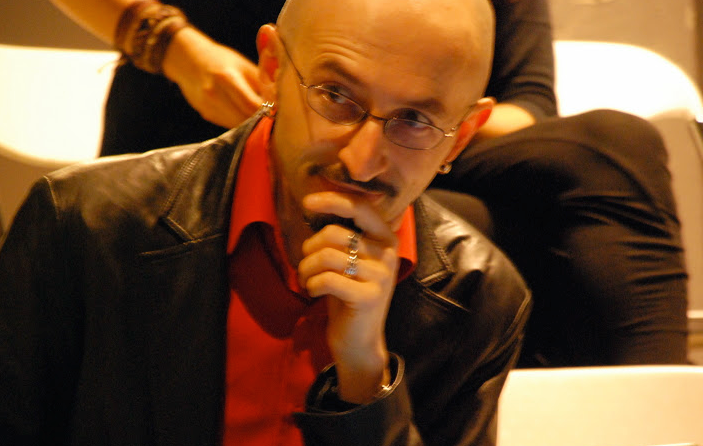Month: April 2012

Dans I Kathimerini (Grèce, 29 avril 2012)
Le quotidien I Kathimerini publie un compte rendu du colloque New Sensorium (Athènes, 20-21 avr. 2012) : l’occasion pour présenter au public grec les travaux du sociologue Antonio Casilli, auteur de Les liaisons numériques. Vers une nouvelle sociabilité ? (Ed. du Seuil) et pour discuter la place de Marshall McLuhan dans le panorama actuel des digital humanities. “Ανάμεσα σε άλλα, ο κοινωνιολόγος του Paristech, Antonio Casilli, μίλησε για την ενσώματη κοινωνικότητα στο Διαδίκτυο, μέσω των αναπαραστάσεων των άβαταρ και την ιική μετάδοση πληροφοριών (viral) μεταδίδοντας την ομιλία του ταυτόχρονα στο Twitter και το Ustream…”
"Pro-ana censorship is ineffective and inefficient" : podcast d'Antonio Casilli sur CBC Radio (Canada, 26 avr. 2012)
Le sociologue Antonio Casilli, auteur de Les liaisons numériques. Vers une nouvelle sociabilité ? (Ed. du Seuil) est l’invité de Jian Ghomeshi pour le magazine culturel Q, sur la chaîne nationale canadienne CBC Radio. Une discussion sur les conséquences négatives de la censure des contenus “pro-anorexiques” dans les médias sociaux. “In my latest book I dealt with the topic of pro-ana (short for “pro-anorexia”) and pro-mia (“pro-bulimia”) websites, blogs and forums of persons with eating disorders. The most controversial…”
Would online censorship be effective? Evidence from two research projects proves the opposite
Hi, you’ve probably reached this blog after listening to my interview with Jian Ghomeshi on CBC Radio Canada’s programme Q…. read more Would online censorship be effective? Evidence from two research projects proves the opposite

"Alan Turing : impardonnable ?" – podcast d'Antonio Casilli (France Culture, La Grande Table, 24 avr. 2012)
Podcast de La Grande Table, le magazine culturel de la mi-journée sur France Culture, consacré à la figure du mathématicien (et père de l’intelligence artificielle) Alan Turing, à l’occasion du centenaire de sa naissance. Pour en parler avec Raphaël Bourgois, Marc Weitzmann, Hervé Le Tellier et le sociologue Antonio Casilli, auteur de Les liaisons numériques. Vers une nouvelle sociabilité ? (Ed. du Seuil)…
"The virus and the avatar" : Vidéo de l’intervention d’Antonio Casilli (colloque New Sensorium, Athènes, 20-21 avr. 2012)
Le sociologue Antonio Casilli, auteur de Les liaisons numériques. Vers une nouvelle sociabilité ? (Ed. du Seuil), interviendra au colloque The new sensorium: embodied perception, extensions of humanity and digital communication (BIOS, Athènes, 20-21 avril 2012). Ici vous pouvez suivre le colloque en livestream. Sur Twitter, vous pouvez suivre Antonio Casilli sur son compte @bodyspacesoc et suivre le hashtag #newsensorium…
Et in Athenis ego: update on ongoing research on the body + riots
I know I should be in Lyon for the www12 conference with all the Internet big shots, but instead I’m… read more Et in Athenis ego: update on ongoing research on the body + riots

Au café-débat du QG Numérique – vidéo (11 avr. 2012)
Le sociologue Antonio Casilli, auteur de Les liaisons numériques. Vers une nouvelle sociabilité ? (Ed. du Seuil), participe à la rencontre “Les données personnelles à l’heure d’Internet” organisée par le QG numérique…
Banning pro-ana websites? Not a good idea, as Web censorship might have a 'toothpaste tube effect'
[Update 05.04.13: A longer version of this post, with revised results, has evolved into a full-fledged article published by the… read more Banning pro-ana websites? Not a good idea, as Web censorship might have a 'toothpaste tube effect'
